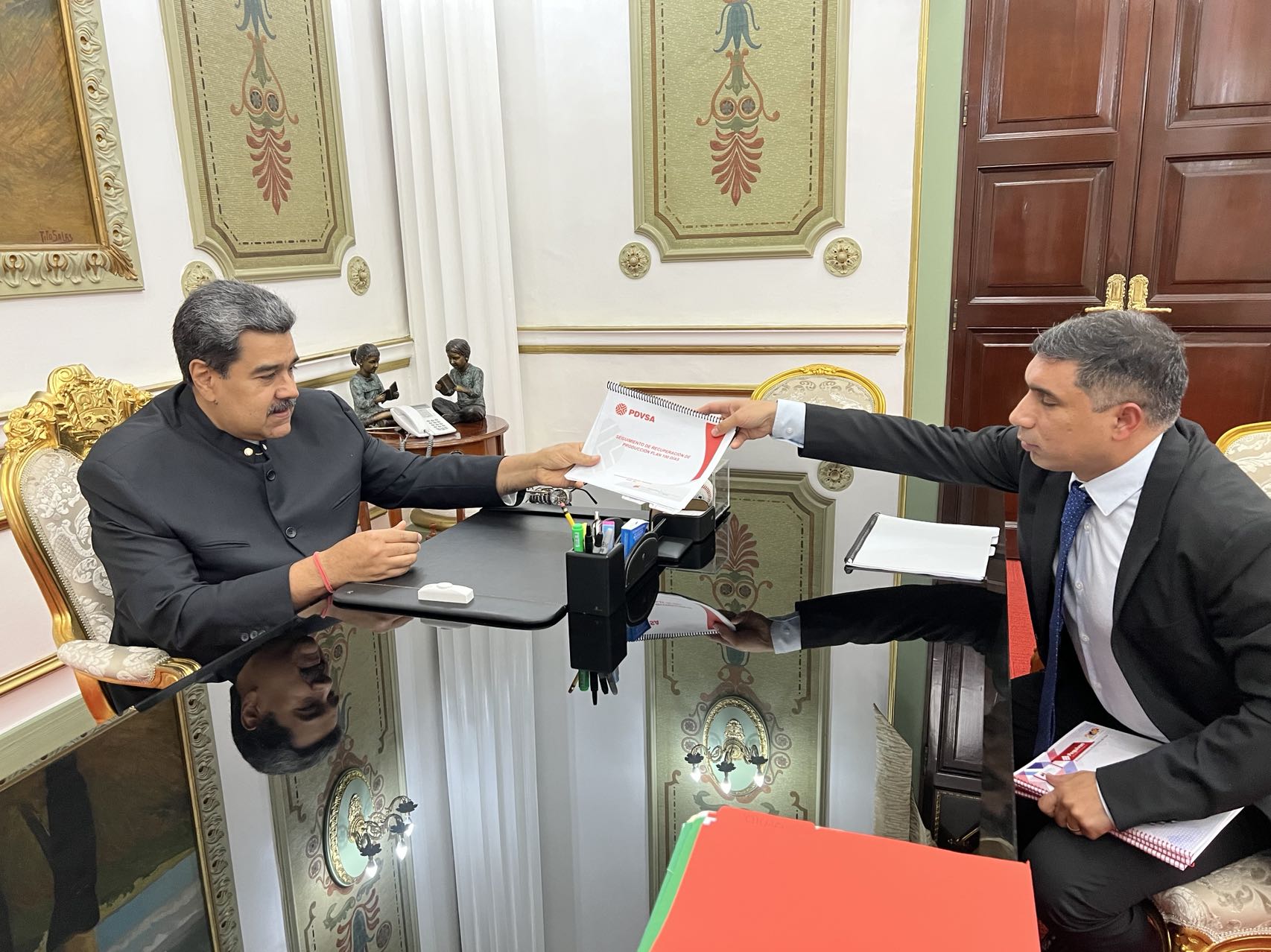Caracas. Venezuela’s state-owned oil company PDVSA has reportedly amassed over $20 billion in lost revenue since 2020 from dealing with unreliable middlemen to distribute crude oil due to the Washington blockade.
An audit of PDVSA contracts found that only 16 percent of oil sales over the past three years have brought in cash, and between January 2020 and March 2023, only $4.08 billion in payments out of a total of $25.27 billion from exports were confirmed. This emerges from internal documents obtained by the news agency Reuters could see.
The remaining $21.2 billion are unpaid bills, including an outstanding balance on swap agreements with long-time partner Iran, which were set to be settled through various exchange mechanisms. Since 2020, Tehran has provided PDVSA with condensate, crude oil and other supplies, as well as technicians, in exchange for Venezuelan heavy oil cargoes to boost production.
An estimated $3.6 billion may be irretrievably lost to untracked exports. Inside PDVSA sources say management has allowed unknown tankers to exit the country with no official payments. In some cases, the payment papers were not included in the SOEs’ contract management system.
The dealings with unreliable middlemen are a result of the financial sanctions, export embargo and secondary coercive measures that Washington has imposed on Venezuela’s oil industry since 2017. Locked out from international markets, Caracas first turned to long-time partner Rosneft to boost production and re-route the cargoes to their final destination. However, this was halted when the US Treasury imposed secondary sanctions on the Russian oil company in early 2020.
As the US blockade drove out established trading partners, President Nicolás Maduro’s administration had to resort to smaller or inexperienced middlemen to place crude oil at deep discounts in Asian markets. This has led to numerous payment delays and also cases of corruption at PDVSA.
While the government has yet to confirm the unrecorded $3.6 billion from tankers who left without paying could be linked to the $3 billion looted from the country’s public coffers, according to a recent corruption investigation revealed. Several high-ranking people were arrested last week. They include former PDVSA vice president of supply and trade Antonio Pérez Suárez and 20 other executives who worked for him, as well as Samuel Testamarck, general manager of PDVSA’s PDV Marina division, responsible for sea distribution and transport.
Following the arrests, the Platform of the Peasant Struggle (Plataforma de Lucha Campesina) announced that organized peasant families have occupied four estates in the Sur del Lago region of Zulia state that belong to Pérez Suárez. “President Nicolás Maduro, the mobilized people give you their full support in the fight against corruption”, is it[called in her tweet.
On Monday, Oil Minister Tareck El Aissami handed in his resignation, stating that he would “fully support the process”. His move followed the arrests of two close associates: Hugbel Roa, MP for the United Socialist Party of Venezuela (PSUV), and Joselit Ramírez, head of the National Cryptocurrency Regulatory Authority (Sunacrip), for their alleged involvement in corruption cases. El Aissami himself has not yet been accused.
Maduro accepted the resignation and appointed PDVSA President Pedro Tellechea as the new Oil Minister on Tuesday.
Tellechea’s first action at the helm of PDVSA in early January was to suspend most oil and fuel exports in order to renegotiate purchase contracts after spotting a spate of buyer defaults. This set off alarm bells about the siphoned off funds.
He has imposed stricter rules on exports: upfront payments are now required before tankers carrying Venezuelan oil or fuel set sail, and partners in swap agreements are required to deliver goods and services in advance.
Venezuela is currently producing 700,000 barrels per day (bpd). The country has seen its production fall sharply under US sanctions from 1.9 million bpd in mid-2017 to less than 350,000 in the second half of 2020. In the past year totaled oil revenues to an estimated $4.7 billion, up from $56 billion five years earlier.
